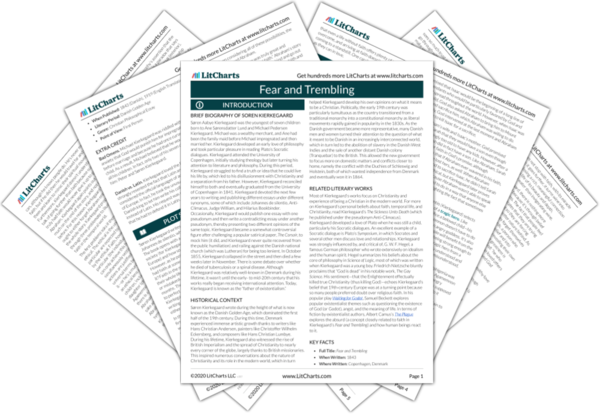Johannes has previously mentioned that a knight of faith is following a path, but it’s a lonely, scary, and isolating path. At any point, however, the knight of faith can jump off the path of faith and rejoin the universal. The reason this is a temptation is that it would be easier and more comfortable. They could make themselves understood and not feel so lonely. However, they would lose the security of faith, which says that, on the strength of the absurd, literally anything is possible. The “marvel” is the miracle of God giving Isaac back to Abraham.
